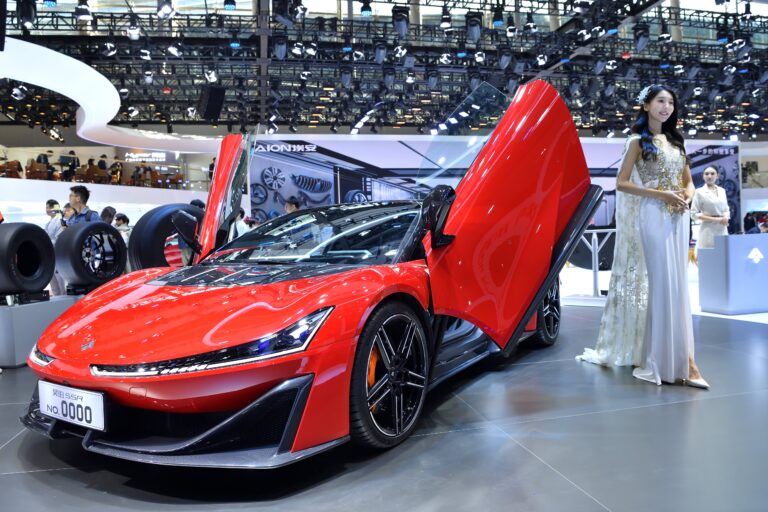The GAC Aion Hyper SSR electric sports car was displayed at Auto Guangzhou 2023 at the China Import and Export Fair Pazhou Complex in Guangzhou, Guangdong Province, China on November 17, 2023.
Vcg | Visual China Group | Getty Images
Chinese automakers are expected to continue their rapid expansion outside their home country and capture 33% of the global auto market share by 2030, according to a new report released on Thursday by leading consulting firm AlixPartners.
Much of the growth from this year’s projected 21% market share is expected to come outside China: sales outside China are expected to grow from 3 million this year to 9 million by 2030, implying a market share increase from 3% to 13% in ten years’ time.
The rapid expansion of Chinese automakers has become a major concern for established automakers and politicians around the world, with many fearing that cheap Chinese-made cars will flood the market and drive down prices of locally made models, especially electric vehicles.
AlixPartners said it expects Chinese brands to grow in all markets around the world, but added that it expects growth to be much smaller in North America, where auto safety standards are stricter and where the U.S. has announced plans to impose 100% tariffs on imports of Chinese-made electric vehicles, and Japan.
“China is the new industry disruptor with its ability to create must-have vehicles with faster time to market, lower acquisition prices, advanced technology and design, and more efficient manufacturing,” Mark Wakefield, global co-leader of AlixPartners’ automotive and industrial practice, said in a statement.
In North America, Chinese automakers are projected to hold just a 3% market share, mostly in Mexico, where one in five cars is expected to be a Chinese brand by 2030. AlixPartners reports that most other major regions of the world are projected to see a dramatic increase in Chinese automakers’ share. These regions include Latin America, Southeast Asia, the Middle East, and Africa.
Chinese brands’ market share in China is also expected to grow from 59% to 72%, according to AlixPartners. Long-established automakers such as General Motors have lost significant ground in China in recent years due to the rapid rise of the domestic auto industry and companies such as BYD, Geely Automobile and Nio.
Models unveil Chinese automaker BYD’s electric vehicle “Song MAX” at the 45th Bangkok International Motor Show 2024 in Nonthaburi province on the outskirts of Bangkok, Thailand on March 30, 2024.
Nurphoto | Nurphoto | Getty Images
In Europe, where Chinese automakers have grown rapidly in recent years, Chinese brands’ market share is expected to double from 6% to 12% by 2030, according to AlixPartners.
According to the report, Chinese automakers are expanding due to cost advantages, local production strategies that enable them to produce where they sell in markets outside of China, and technologically advanced vehicles that meet changing consumer preferences for design and freshness.
“Automakers expecting to continue operating on business-as-usual principles are not just facing harsh reality, they are also facing obsolescence,” Andrew Bergbaum, global co-leader of AlixPartners’ automotive and industrial practice, said in a statement.
Chinese EV automakers develop new products in half the time of traditional automakers (40 months vs. 20 months), primarily by under-engineering and under-testing rather than over-engineering, and they also enjoy a 35% cost advantage by being made in China.
Wakefield said traditional automakers will have to rethink their business development processes and the pace of vehicle development to compete with Chinese automakers.

